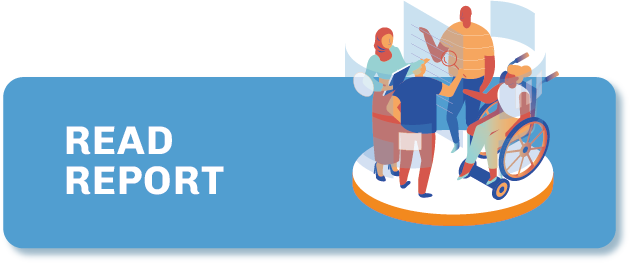Luxembourg
Launching new digital native media outlets in a small country with a low pluralism rate, such as Luxembourg, is not easy, but new government funds dedicated specifically to digital media organisations could increase their numbers and their viability. However so far, new media outlets have created alternative business models to appeal to niche audiences, foster media independence and slightly increase media pluralism.
Media organisations
in the Directory
TYPE OF COVERAGE

TYPE OF ORGANISATION

GENDER OF FOUNDERS

Press freedom
The Luxembourg Constitution explicitly recognises freedom of expression, which is protected by national law, notes the Centre for Media Pluralism and Media Freedom’s Monitoring Media Pluralism in the Digital Era (MPM 2022) report. Respect for freedom of expression improved in the last year post-Covid, it notes, with journalists again granted full access to institutional information and press conferences, as the government resumed broadcasting their press conferences, including the questions of journalists to government officials. Attacks on freedom of expression are rare, although Luxembourg also sees cases of SLAPPs (strategic lawsuits against public participation).
Market structure and dominance
Media concentration remains a major issue in Luxembourg, a collateral effect of the small size of its market. However, the problem is increased by the fact that Luxembourg is one of the few European Union member states lacking a national provision aimed at limiting horizontal or cross-media concentration, notes the Centre for Media Pluralism and Media Freedom report. Luxembourg’s print sector is dominated by the companies Editpress and Mediahuis, while the audiovisual sector is dominated by the RTL Group, it adds.
In Luxembourg, there is no legislation regulating conflict of interest, while media organisations are only obliged to disclose the identity of owners holding 25% or more of their shares. The printed press has a historical tradition of ties to political parties and interest groups such as trade unions, hence media independence and transparency remains quite difficult to determine. Despite the multilingualism of the country, which has three official languages, the tradition is for publications to primarily write in German, and less often in French. Minority groups and communities speaking different languages remain underserved in public and private media.
How media is funded
The media industry in Luxembourg is mainly reliant on advertising and national funding. In July 2021, to bring more balance between traditional outlets and digital media organisations, the government introduced new regulations to equalise opportunities for funding for the so-called “pure players”; media organisations that are completely digital. The current law adapts the aid scheme to increase the digital transition in the media sector by providing three different funding schemes for increasing innovation in newsrooms, helping media start-ups and community media.
Four profiles of digital native media organisations from Luxembourg are included in the directory. This includes three profiles based on interviews and one profile based on desk research.
The total number is a symptom of fairly new developments in the digital media landscape, but also of the small audience size of the country. None of the digital native media outlets primarily rely on government funds, as they were never specifically available for this media type before 2018, hence those willing to set up new media outlets have had to rely on finding alternative business models for economic viability.
But that is not the only reason. For the investigative digital platform Reporter.lu, this approach has been a way to break free from the traditional dynamic between the media sector and political forces. “Since the beginning, we have been strict about not having investors, nor donors, because in a small country like Luxembourg, if you rely on them, then you always have a problem to be dependent of particular political or corporate actors,” says Christoph Bumb, co-founder of Reporter.lu. “Independent journalism cannot be taken for granted, also in Luxembourg,” he adds. In 2017, the founders launched a crowdfunding campaign to start the organisation. Today, over 70% of its revenue comes from subscriptions. The rest comes from new state subsidies for professional journalism.
The organisation Silicon Luxembourg, which was started as a blog over 10 years ago, now operates as a major alternative media outlet. It has capitalised on the possibility to showcase the country’s tech and start-up ecosystem, writing content in English and therefore attracting a global audience to this niche sector. The outlet, however, mainly funds itself via the creation of an exclusive members’ club for investors and funders located in Luxembourg, who pay membership subscriptions that help the editorial team run its daily operations, while articles, videos, podcasts and newsletters remain freely accessible.
No digital native initiatives among minority groups, such as the Portuguese Luxembourger communities (accounting for 14.9% of the population), were reported, showing that these communities remain underserved on the online digital front.
Some development in the online media market should be envisioned soon, especially now that digital native media outlets can rely on new streams of funding and revenue to set up and launch their initiatives. It will be interesting to see whether more communities will take up this opportunity to establish publications in different languages and to cover underreported topics. Legislation on ownership transparency for both print and online media could effectively improve media pluralism in the country.
Last updated: January 2023
CREDIT FOR STATISTICS: Press Freedom statistics, RSF Press Freedom Index 2022; Internet penetration and population statistics, from Internet World Stats

